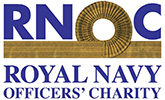

Posted on Friday 7 May 2021
Our next ARNO Talk is on Thursday 20 May at 1900 and features author Rowland White who will talk about his latest book, ‘Harrier 809: Britain’s Legendary Jump Jet and the Untold Story of the Falklands War’. You can sign up for the talk HERE
Rowland White is the author of three critically acclaimed works of aviation history: Vulcan 607, Phoenix Squadron and Storm Front. All three have been Sunday Times top ten bestsellers. His writing has appeared in a range of national magazines and newspapers including the Guardian, Daily Mail and Esquire magazine.
Born and brought up in Cambridge, Rowland studied Modern History at Liverpool University. He has held a private pilot’s licence since 1998 and lives near Cambridge with his wife and three young children.
Wayland Austin has reviewed the book:
A Thrilling Tribute to One of the World’s Most Iconic Aircraft and Its Role in the Falklands Conflict
In April 1982, Argentina invaded the Falkland Islands. Britain’s immediate response was to dispatch a task force. But behind the pomp and bravado of the task force’s departure from Portsmouth on an 8,000 mile journey south was the reality that the Royal Navy had only 20 Sea Harriers and the RAF weren’t going to be able to help (much). The Argentine Air Force had over 200 aircraft and were operating closer to their own back yard.
‘Without the Sea Harrier there could have been no Task Force’ – Admiral Sir Henry Leach, First Sea Lord and Chief of the Naval Staff
This astonishing, fast-paced book by the renowned author Rowland White, reads like a thriller. It is the story of how, in just three weeks, the Fleet Air Arm cobbled together 9 Sea Harriers and formed, trained and equipped a brand new squadron from scratch, something that should normally take 9 months. Under the leadership of Lt Cdr Tim Gedge, 809 Squadron was formed to bolster the two squadrons (800 and 801 NAS) already sent south. Their journey to Ascension Island was epic in itself and they were eventually transported into the war zone onboard the “third aircraft” carrier, SS Atlantic Conveyor.
White, then tells the story of the impact the Sea Harrier and the RAF’s GR3s had on the conflict. His narrative is gripping and hits home with hair-raising details of the dangers confronting the British Task Force.
Harrier 809 is a story of skill and daring, of technological prowess and of imagination. Harrier 809 has an element of “The Dirty Dozen” and is all the better for it. It is the story of how quickly you can get things done when you are able to cut through the layers of bureaucracy and everyone is pulling together with the same clear objective. I was struck, in some ways, by the country’s response to the Covid-19 pandemic and the UK’s vaccine roll-out programme. It was also the story of a group of men, far from home, battling the South Atlantic weather who display great courage, fortitude, aggression and resolve. It is well worth a read.
It is perhaps fitting that the next Royal Naval fighter squadron, which will be equipped with the F-35, will be 809 Squadron.
Finally, it is interesting that Frank Ledwidge wrote in the Sunday Time recently that: “There is a residual melancholy in almost any account of the Falklands conflict. In the early 2000s, when they were still regarded by many as the best naval fighters in the world, the Sea Harrier were scrapped. In 2010 the remaining ground attack Harrier GR7s and the aircraft carriers themselves followed, just months before the Libya crisis proved the value of having naval air power.” Perhaps, there is a lesson in this about the power and reach of Naval aviation, a lesson the USA never forgot.

